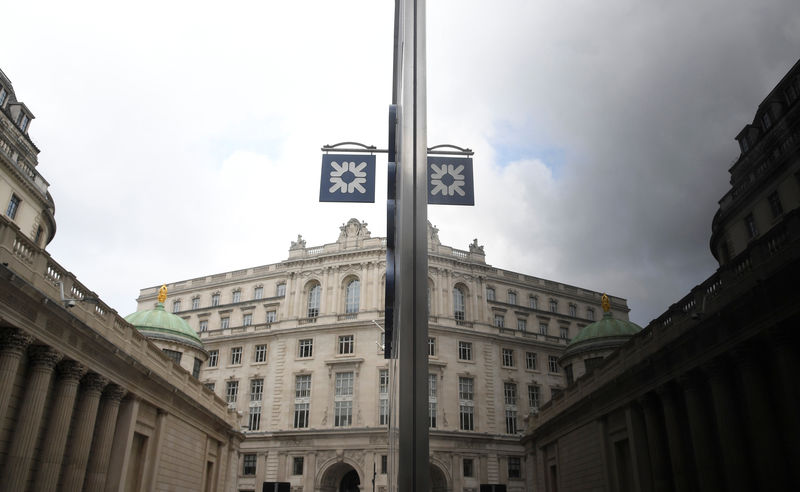By Iain Withers
LONDON (Reuters) - Banks in Britain are trying to prepare businesses for a potential cash crunch after Brexit, whether or not a deal agreed by the UK and Brussels this weekend is approved by parliament next month.
Banks fear Britain's departure from the European Union could cause a spike in bad loans with corporate clients, if it leads to delays in cross-border shipments and payments or big swings in sterling.
To protect against these risks some banks are extending credit early to companies and selling insurance against volatility in sterling.
State-controlled Royal Bank of Scotland (L:RBS) trebled its "growth fund" for small businesses last month from 1 billion to 3 billion pounds ($3.86 billion), saying it had set aside extra cash to help customers to get through Brexit.
It said it may need to top up the pot again. "To a large extent it depends on the type of Brexit we get," Mike Slevin, head of capital management at the bank, told Reuters.
It has identified nearly 2,000 at-risk companies across several sectors it believes are exposed to a Brexit fallout.
These include those reliant on complex overseas supply chains – such as car part manufacturers and medicine makers – and those susceptible to an economic downturn - such as leisure and construction.
Credit being offered by RBS includes increased import and export funding, supply chain finance and bigger working capital lines for everyday operations, Slevin said. It is logging where credit is taken up due to Brexit to track the impact.
But take-up has been slow so far and small firms are not as prepared as they ought to be, Slevin said.
"Many want to hold back from increasing lines until a little closer to the time because of the cost. So it's a slow burn."
CYBG (L:CYBGC) - which owns the Clydesdale, Yorkshire and Virgin Money (LON:VM) brands – has also been contacting businesses to offer credit, including farmers across Yorkshire and Scotland that account for a significant chunk of its business loan book.
British farmers are reliant on support payments from the EU, and while these are guaranteed by the British government for up to three years after it leaves the EU in March next year, the FTSE 250 lender wants to smooth any bumps in the road.
"We have worked with a good number of our customers in agriculture. We are making sure they are financially ready,” CYBG chief financial officer Ian Smith told Reuters.
Silicon Valley Bank, a U.S.-based lender focused on the technology sector, has in recent months sold a large number of currency hedges to start-up companies in Britain exposed to fluctuations in the sterling/dollar exchange rate
"A number of our clients have raised funding in dollars with U.S. investors but have costs largely in sterling, so they've been entering into forward contracts to lock in rates," said Phil Cox, head of EMEA for the bank.
The majority view among tech firms is that a Brexit deal will be finalised, he said, triggering a rally in the pound that would leave clients with unhedged dollar positions vulnerable.
Some British companies have also been taking action to protect against potential Brexit disruption.
These include Mr Kipling cakes baker Premier Foods (L:PFD), industrial products group Electrocomponents (L:ECM) and online white goods seller AO World (L:AO).
Tile retailer Topps Tiles (L:TPT) said on Tuesday it was also increasing inventories of some products in preparation for any supply problems. The company declined to comment on whether it had asked its banks to extend credit lines.
British banks have had low bad debts over the past few years through a period of rock bottom Bank of England interest rates and economic growth.
But finance industry analysts say these historically low levels of impairments on British banks' loan books cannot last.
"We expect impairments to get back to more normalized levels. A hard Brexit would no doubt accelerate that," John Cronin, banking analyst at Goodbody, said.
The threat of a rise in bad loans is one of the reasons why Brexit has depressed British bank stock prices and delayed capital returns for long-suffering investors.
The Bank of England will release the results of its latest health check of the country's banks, including the potential impact of a chaotic Brexit, on Wednesday.
CYBG for one is holding on to the bulk of its excess capital in case of a Brexit shock. "Some investors are talking to us about return of excess capital, but it is not the right time to have that conversation," CYBG's Smith said.

GRAPHIC: British bank share prices weighed down by Brexit uncertainty - https://tmsnrt.rs/2PR51he